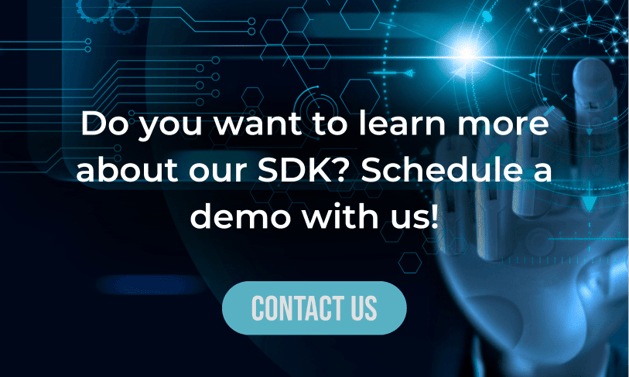Research and development (R&D) teams are at the heart of innovation and progress across industries. Whether in technology, pharmaceuticals, automotive, or consumer goods, R&D professionals push the boundaries of knowledge and practical application. However, this journey is not without its significant challenges and sacrifices. By understanding these hurdles, organizations can better support their R&D teams to foster environments conducive to groundbreaking innovations.
Navigating the Complex Path of Innovation
Innovation is a complex journey. It is filled with complex challenges that R&D teams must navigate daily. One of the most daunting aspects is the pressure to continuously innovate while maintaining the viability and competitiveness of their projects in the market. Teams must balance creative freedom with strategic alignment to company goals, often under tight deadlines and budget constraints.
Resource Allocation and Funding Limitations
A critical challenge for many R&D teams is the need for more resources and funding. Despite the pivotal role that R&D plays in long-term success, not all projects receive the necessary financial support to explore and develop ideas fully. This financial limitation can stall promising projects and demotivate talented professionals driven by curiosity and the potential impact of their work.
Moreover, resource allocation extends beyond budget constraints. It includes access to cutting-edge tools, technologies, and the right human capital. The lack of advanced tools and skilled personnel can significantly hinder the progress and efficiency of R&D activities, impacting the organization's overall innovation capacity.
Time Constraints and Market Pressure
Time is a luxury that R&D teams often lack. The race to market can be intense, with competing firms constantly striving to launch the next big thing. This pressure can lead to rushed research phases, where the due diligence of testing and iterations may be sacrificed for speed. The result can be products that are not fully optimized or solutions that do not meet all customer needs, affecting both market success and the credibility of the R&D team.
Introduction to Seamless Integration
In the rapidly evolving field of artificial intelligence, efficiency and ease of integration are paramount. The challenges faced by R&D teams are significant, yet they are also opportunities for growth and improvement. By understanding and addressing these issues, companies can enhance their innovative capabilities and support their R&D teams more effectively.
The Embedl Model Optimization SDK stands out as a groundbreaking solution, offering a remarkable install & integrate with 3 lines of code. This streamlined approach minimizes the initial setup time and significantly accelerates the journey from development to deployment, enabling a much shorter time-to-market.
Reducing Time and Effort in Model Experimentation
One of the most compelling features of the Embedl Model Optimization SDK is its ability to eliminate the laborious process of manual model tuning. Traditionally, R&D teams spend countless hours experimenting with different parameters to find the optimal setup for deep learning models. However, with this SDK, the process is fully automated, freeing valuable time and resources. This automation ensures that your R&D teams can divert their attention to more critical, high-value problems that require their expertise.
Enhancing the Productivity of Data Science Teams
By automating routine tasks, the Embedl Model Optimization SDK allows R&D teams to focus on their core competencies and innovation. This boosts their productivity and enhances their job satisfaction as they can engage in more meaningful and creative work. The shift from mundane tasks to challenging problems fosters a more stimulating work environment and drives further advancements in your projects.
Streamlining Deployment and Accelerating Time-to-Market
The SDK's minimal code requirement dramatically simplifies the deployment process. Organizations can deploy sophisticated deep learning models swiftly and more efficiently, significantly reducing the time-to-market. This rapid deployment capability provides a competitive edge in industries where speed and agility are critical for success.
Broad Compatibility and Flexible Application
The Embedl Model Optimization SDK is designed to be highly compatible with various programming environments and deep learning frameworks. This versatility ensures it can be seamlessly integrated into any existing system without requiring extensive modifications.
Scalability and Performance Optimization
Beyond ease of installation and automation, the SDK excels in scalability. It is engineered to handle both small-scale and large-scale deep learning operations efficiently. This scalability ensures that as your data grows and your needs evolve, the SDK will continue delivering optimal performance without needing constant reconfiguration.
Continuous Support and Evolution
Adopting the Embedl Model Optimization SDK means accessing continuous support and updates. Our team is dedicated to ensuring that the SDK remains at the forefront of technology advancements and security practices. Regular updates include enhancements in features, performance improvements, and security patches, helping your organization maintain a leading edge in technological capabilities.
Conclusion: Leading the Way in Efficient Model Deployment
In the swiftly evolving landscape of technology and business, companies across all sectors are relentlessly seeking ways to support their R&D teams, expedite their time to market, and optimize operational efficiencies. This pursuit aims to integrate advanced, fully automatic tools that significantly reduce the need for extensive experimentation and manual intervention. This strategic shift speeds up product development cycles and enables data scientists to concentrate on solving more complex core problems that drive innovation and competitive advantage.
The Embedl Model Optimization SDK is not just a tool; it's a hardware aware transformative solution that redefines the boundaries of deep learning implementation. Reducing complexity, accelerating deployment, and freeing up your R&D team to focus on innovation is pivotal in enhancing your organization's overall productivity and competitiveness.

